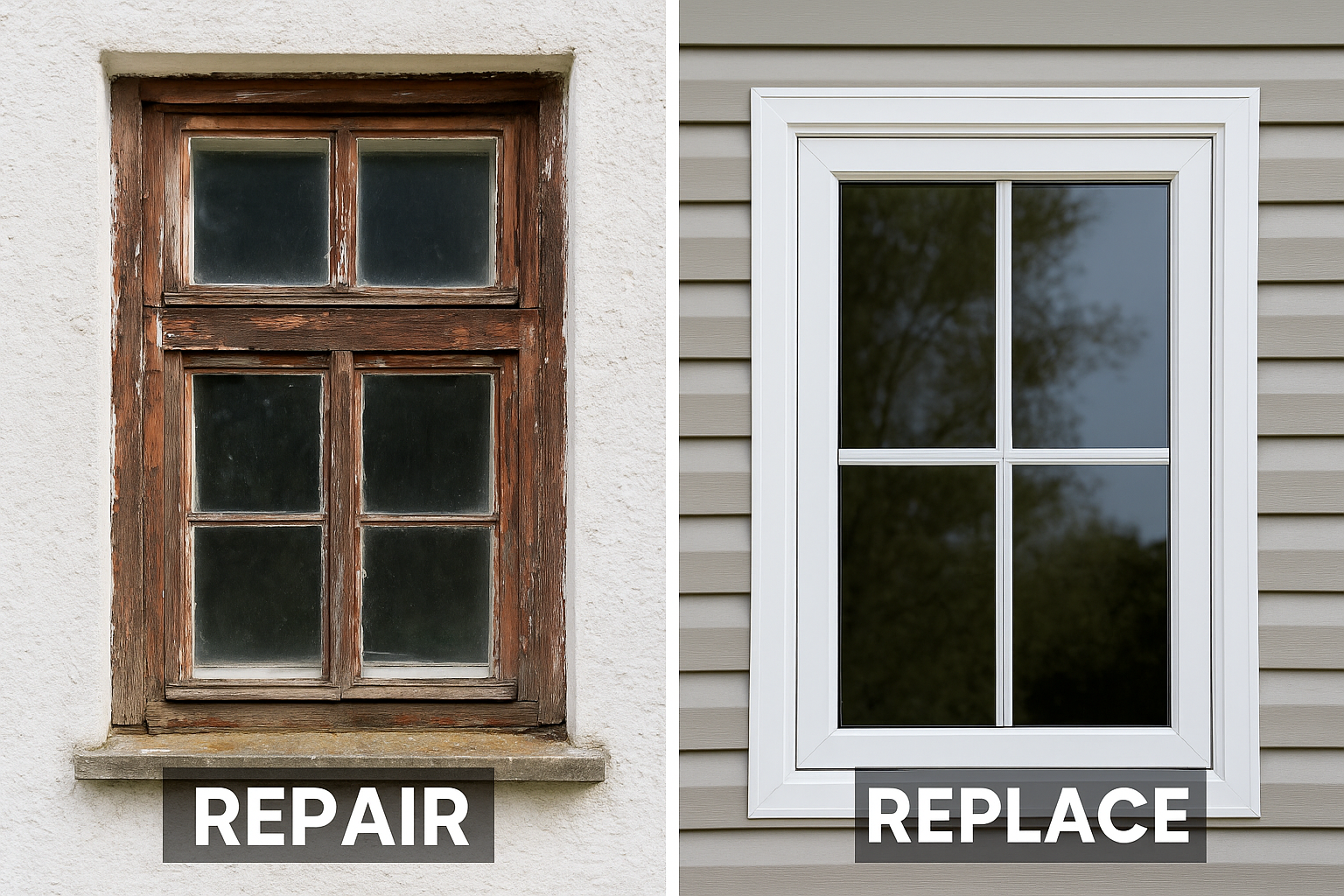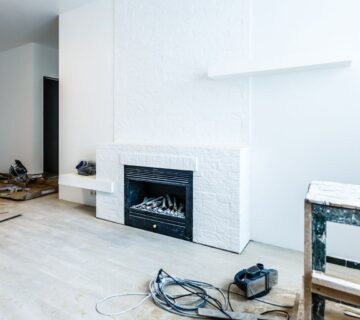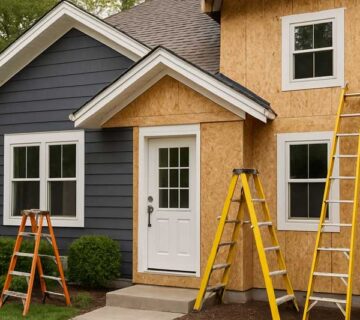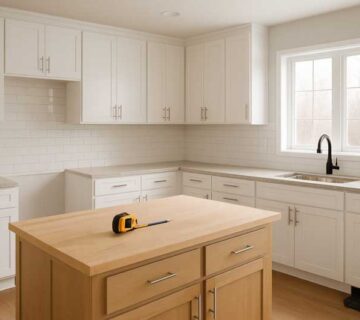If you live in an older home, your windows may be showing their age. But do they need a full replacement—or just a few repairs? Understanding the difference can save you money while improving comfort and energy efficiency. In this article, we compare window replacement vs. repair to help you make the best choice for your home.
Why It Matters in Older Homes
Older homes often feature original wood windows, outdated frames, or single-pane glass. While charming, these windows may leak air, stick when opened, or let in moisture. Knowing when to repair or replace makes a big difference in comfort, efficiency, and home value—especially as energy costs continue to rise.
When to Repair Windows
Minor Drafts or Seal Leaks
If your windows are in decent shape but feel drafty, repair might be the better option. Re-caulking, applying weatherstripping, or reglazing can stop minor air leaks without the need for a full replacement. This is often a cost-effective solution if the frames and glass are still intact.
Broken Hardware or Stuck Windows
Issues like jammed sashes, loose locks, or stuck rollers can usually be repaired. Replacing hardware or lubricating moving parts restores function without altering the window’s appearance. This is especially helpful in preserving the architectural character of historic homes.
Rot or Damage in Isolated Areas
When damage is limited to one window or a specific part of the frame, repair makes sense. You can patch small areas of rot, replace cracked panes, or fix chipped paint without replacing the entire unit. Spot repairs help maintain your home’s original features while reducing costs.
When to Replace Windows
Constant Condensation or Fog Between Panes
Double-pane windows that fog up or collect condensation inside the glass are a sign of seal failure. Once the seal is broken, energy efficiency is lost, and moisture builds up. In most cases, the best solution is full window replacement since repairing a sealed unit isn’t practical.
Energy Efficiency Concerns
Single-pane windows or older frames often lack insulation. If your energy bills keep rising, your windows could be to blame. Upgrading to ENERGY STAR®-rated, double-pane windows significantly improves thermal performance and reduces heating and cooling costs—especially in regions with seasonal extremes.
Structural Damage or Rotting Frames
Windows with widespread rot, mold, or structural damage should be replaced. Repairing large areas can cost as much as a new window and won’t address deeper issues like water intrusion or compromised framing. Replacement ensures long-term safety and prevents further damage to your home’s envelope.
Benefits of Window Repair
- Preserves Historic Aesthetics: Maintains original charm and architectural detail.
- Lower Cost: Simple fixes cost much less than full replacement.
- Less Disruption: Repairs take less time and often don’t require permits.
- Eco-Friendly: Reduces waste by reusing existing materials.
Benefits of Window Replacement
- Improved Efficiency: Modern materials cut energy loss dramatically.
- Better Functionality: Easier to open, lock, and clean.
- Enhanced Security: New windows offer stronger locks and impact resistance.
- Boosted Curb Appeal: Clean, updated windows improve your home’s look and resale value.
Cost Comparison: Repair vs. Replacement
- Repairs: Typically cost between $100–$400 per window, depending on the issue.
- Replacements: Can range from $500–$1,200+ per window for standard models, and more for custom sizes or historic styles.
While repairs are cheaper short-term, frequent fixes can add up. Replacements cost more upfront but offer better ROI through energy savings and property value.
Factors to Consider
Home’s Age and Value
If your home has historical significance or unique design elements, keeping original windows may be worthwhile. In contrast, if you’re planning to sell soon, new windows can increase buyer appeal and help justify a higher asking price.
Climate and Energy Use
In colder climates, poorly insulated windows cause major heat loss. If your HVAC system works overtime in winter or summer, replacing windows can improve year-round comfort and reduce monthly energy bills.
Long-Term Plans
If you’re staying in your home for 10+ years, investing in new windows pays off over time. For short-term needs, targeted repairs may be more practical. Always align your choice with your personal goals and budget.
Conclusion
Choosing between window replacement vs. repair depends on your home’s condition, energy efficiency needs, and future plans. Repairs work for minor issues or preserving charm, while replacements are best for long-term savings and performance. Either way, addressing window problems now protects your investment and improves daily living.
✅ Need help deciding what’s best for your home? Contact Lopez Chavarria Construction for a window inspection and expert guidance tailored to your needs.






No comment